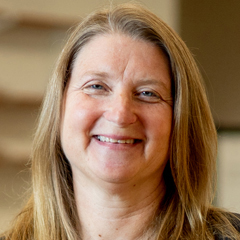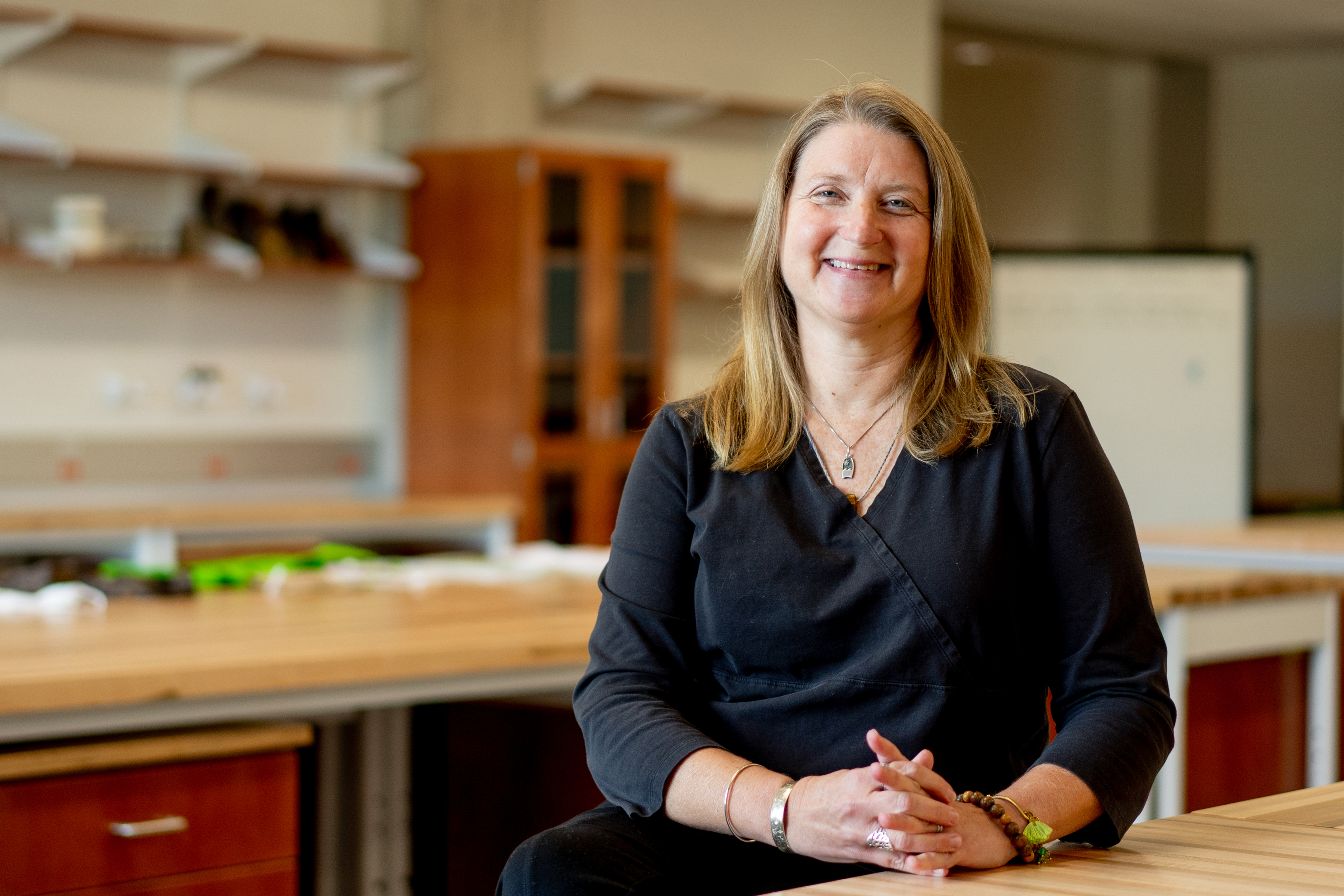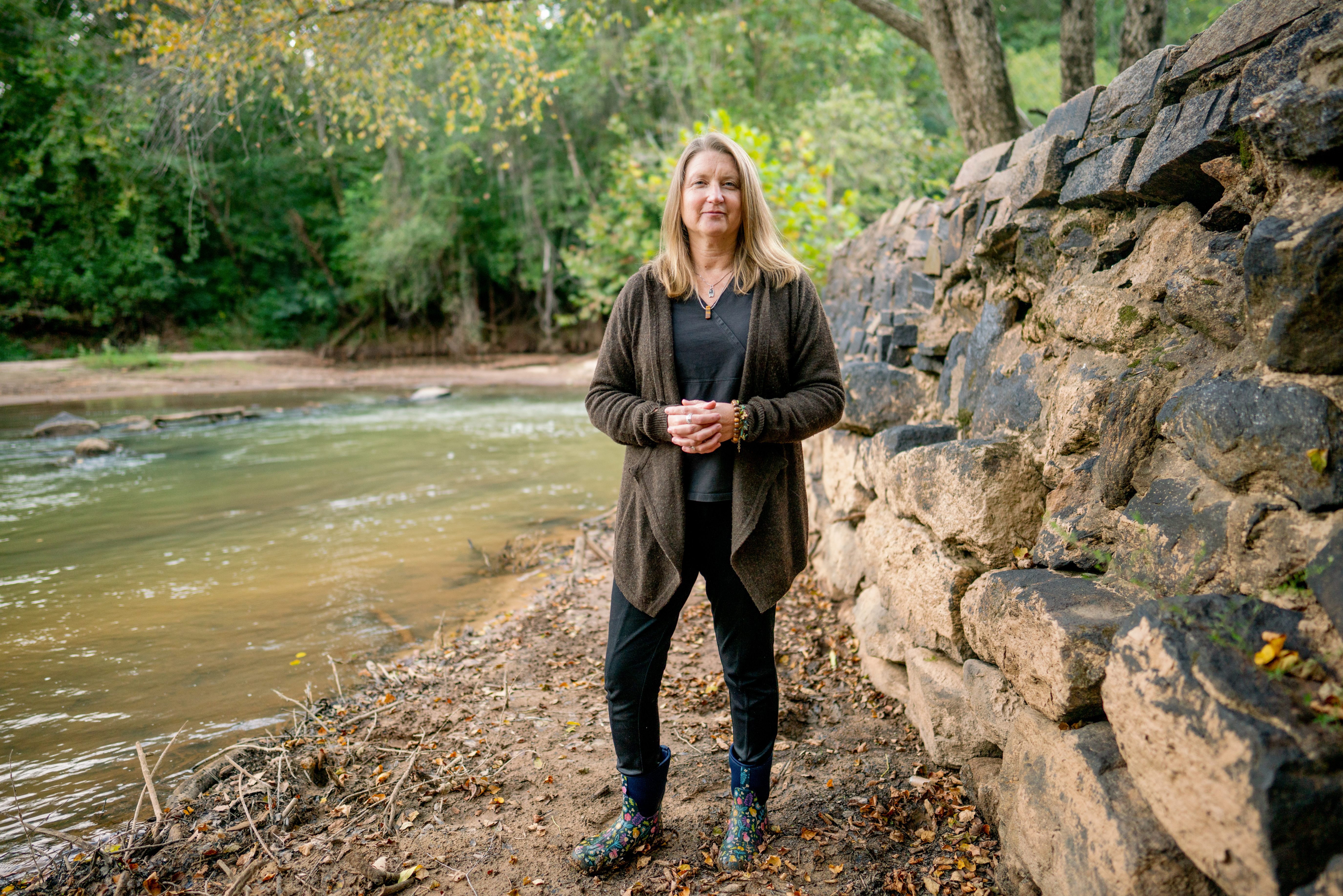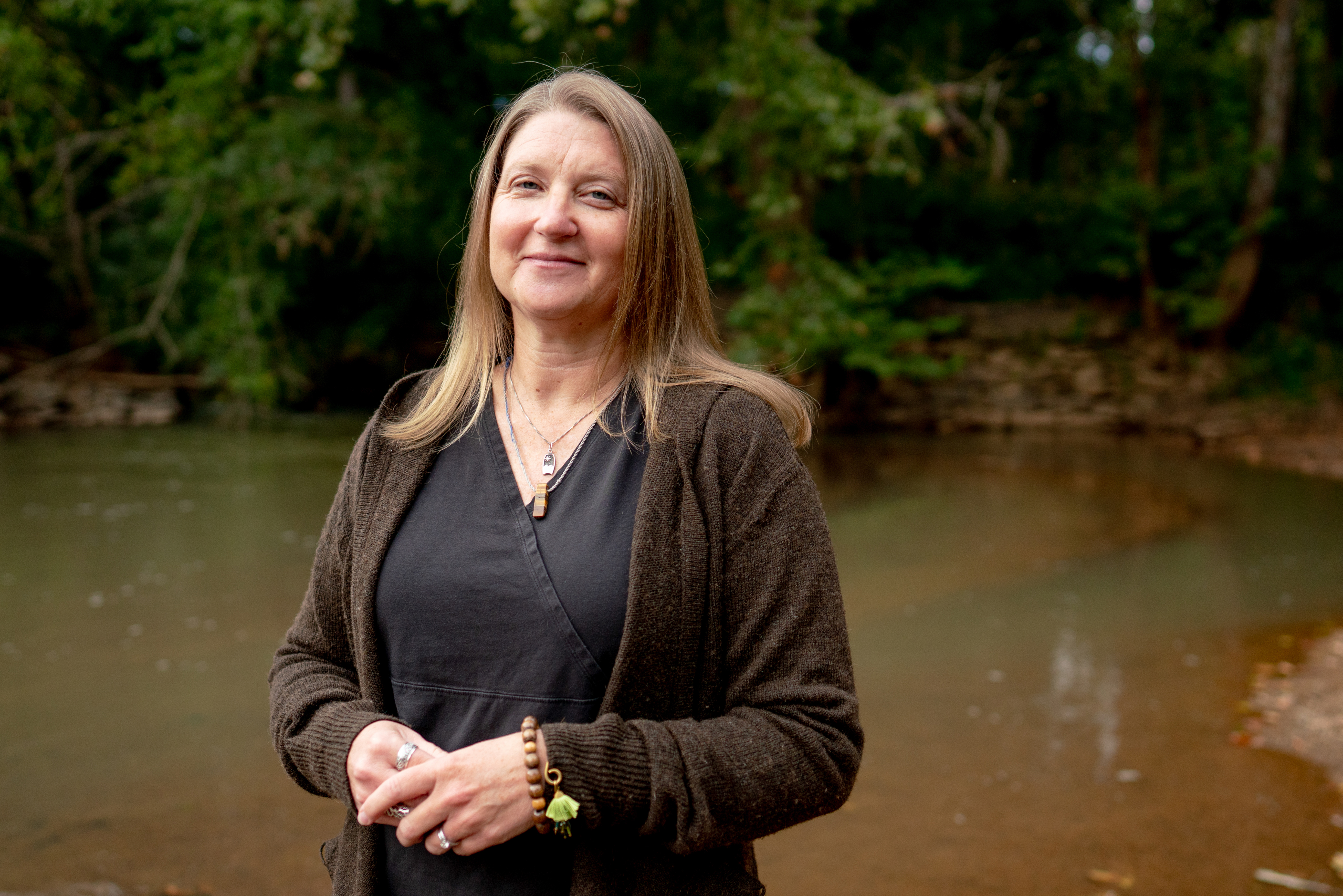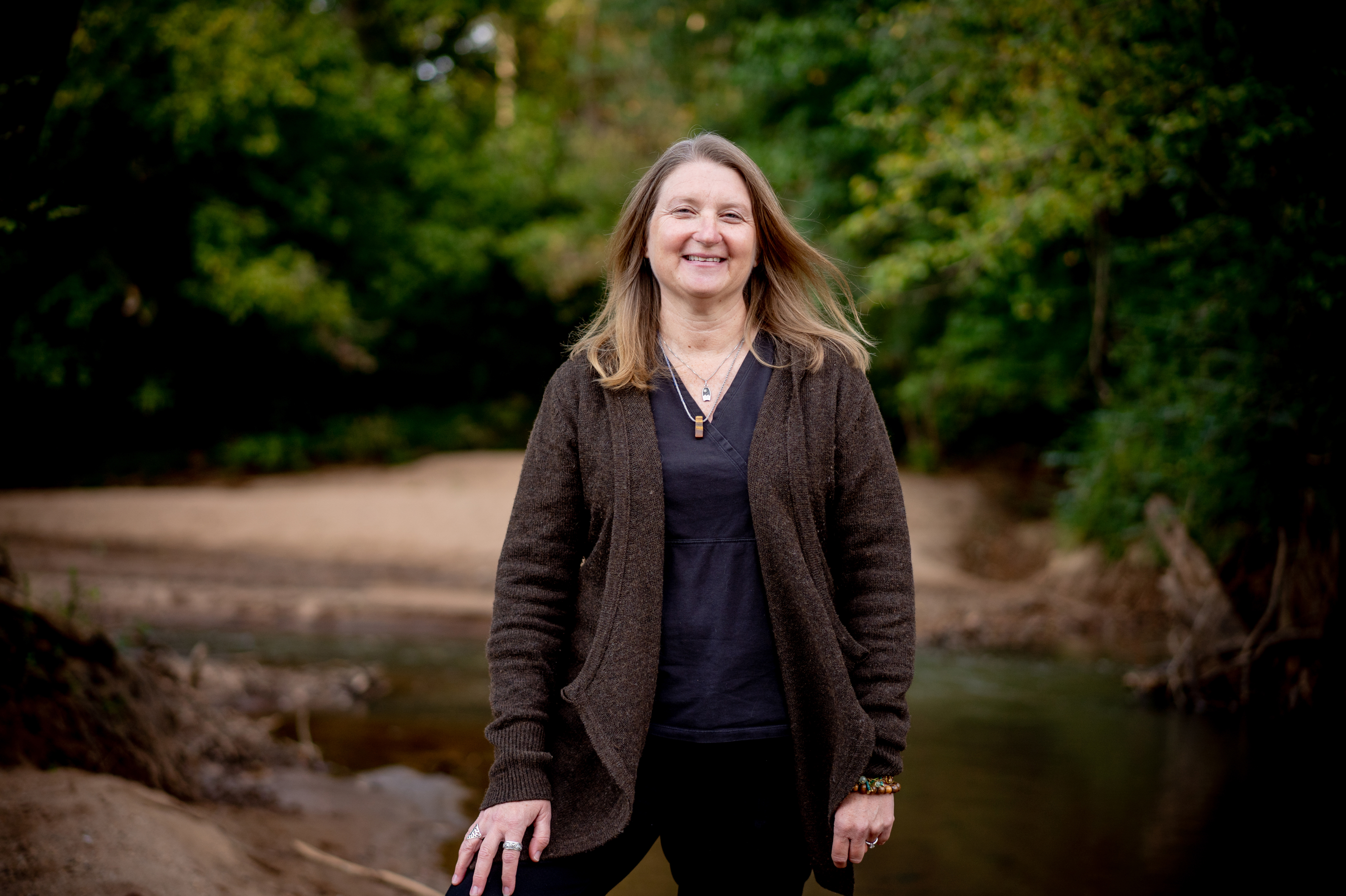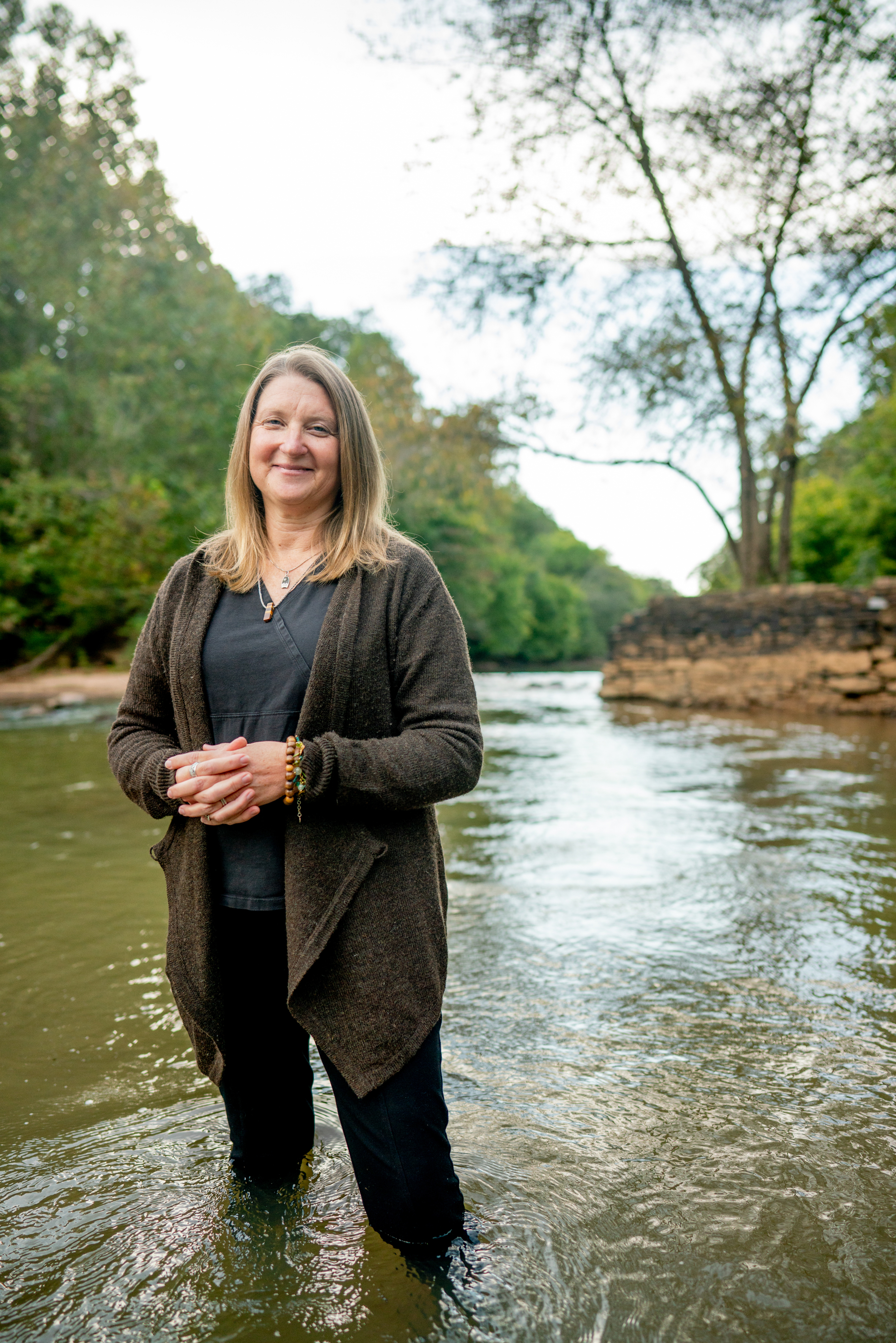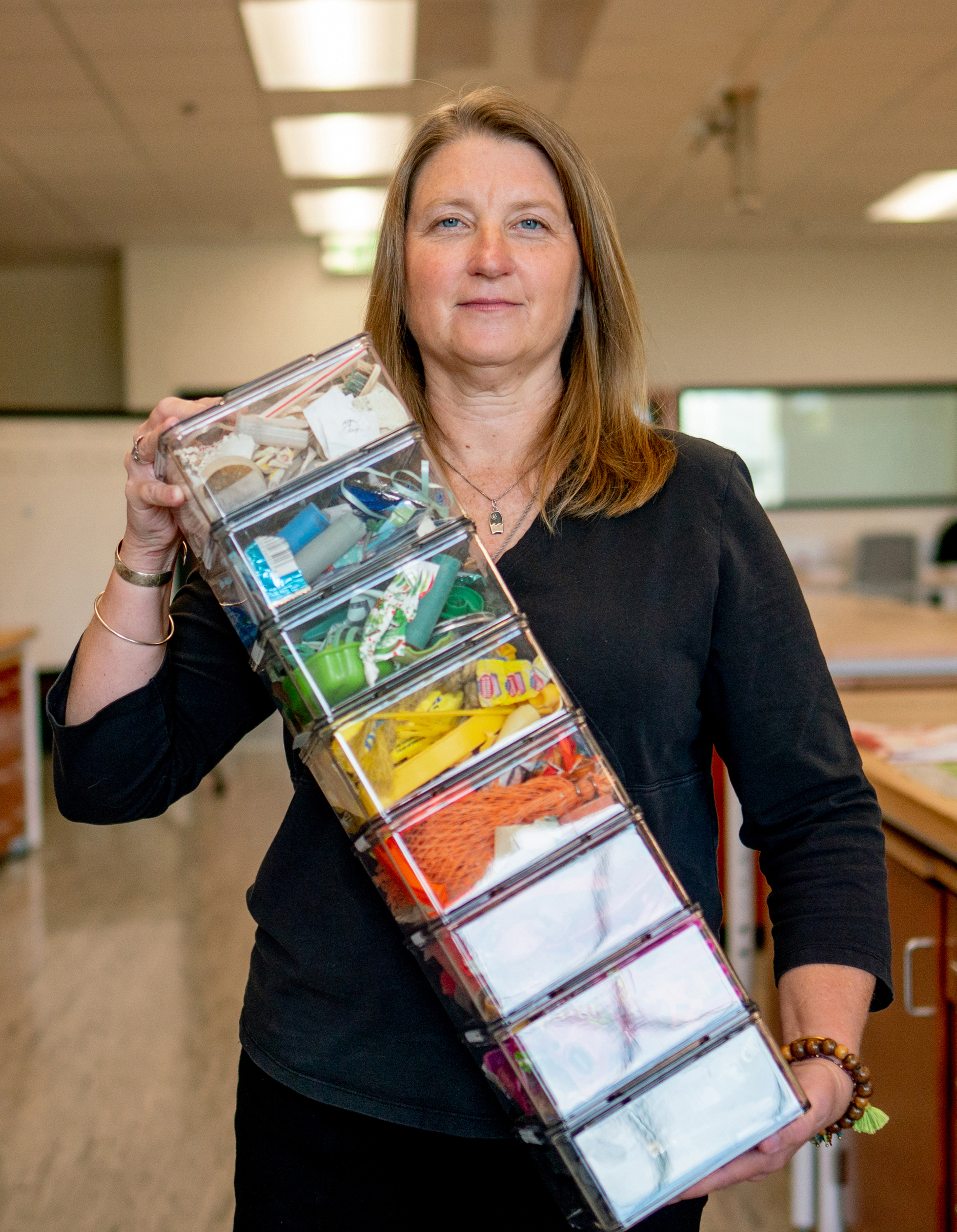About Jenna’s Work
Jenna Jambeck is an environmental engineer developing new methods for understanding and addressing global plastic pollution. Since the 1950s, humans have produced over 9 billion metric tons of plastic. Jambeck is filling critical gaps in our knowledge concerning the amount, sources, and flow of plastic waste in our waterways. She co-developed the Marine Debris Tracker mobile app, which provides a platform for community members to log the types and quantities of plastic debris in their communities. The open access data informs research and education efforts. In a seminal 2015 study, Jambeck and colleagues provided the first estimate of the amount of plastic waste entering the ocean each year: 8 million metric tons.
Jambeck has focused much of her recent work on creating standardized methods for characterizing the processes and socioeconomic factors driving plastic waste leakage into the environment. Reducing plastic pollution on a large scale requires complex systems-level change. Jambeck’s standardized frameworks for capturing and measuring data can help determine the efficacy of such changes and prevent unintended and potentially harmful side effects. In 2019, she co-led an interdisciplinary team that gathered the first empirical baseline data on plastic pollution along 1,600 miles of the Ganges River system. In addition, she and her team conducted interviews and surveys with over 1,400 people to understand plastic use, waste collection methods, and the impact of plastic waste on riverside communities. Jambeck undertook a similar project along the Mississippi River in 2021.
Across her work, Jambeck is committed to translating scientific evidence into policy solutions. To that end, she and colleagues created the Circularity Assessment Protocol (CAP). CAP is a rigorous, cost-effective toolkit for assessing materials management systems at the community level. It reveals how consumer plastic flows into a community, how it is consumed, and how it flows out, either through waste management or via leakages into the environment. The CAP methodology analyzes both the material aspects of waste flow (that is, the types of plastics being used, the waste collection methods, and processing infrastructure) and the system of actors. The system includes the plastic manufacturers, the users of plastics in the community, and the people whose livelihoods depend on waste management (such as waste pickers). CAPs have been implemented in over thirty cities around the world since 2020, including in Vietnam, India, and the United States. Importantly, Jambeck and her team work in partnership with local researchers in conducting assessments. This ensures that there is local ownership and capacity for implementing potential solutions and measuring their effectiveness. With an emphasis on communicating with the public, involving local stakeholders, and holistically assessing materials management, Jambeck is galvanizing local, national, and global efforts to reduce this grave threat to our planet and well-being.
Biography
Jenna Jambeck received a BS (1996) and a PhD (2004) from the University of Florida. She was a research assistant professor in the Department of Civil and Environmental Engineering at the University of New Hampshire from 2005 to 2009. In 2009, she joined the College of Engineering at the University of Georgia, where she is currently Georgia Athletic Association Distinguished Professor of Environmental Engineering. Her scientific articles have appeared in Science, Marine Policy, Marine Pollution Bulletin, and Environmental Science and Technology, among other journals.
Published on October 12, 2022







